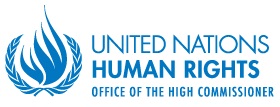Statement of the UN High Commissioner on Human Rights Michelle Bachelet

Geneva (6 December 2018) - On 10 December, we mark the 70th anniversary of that extraordinary document, the Universal Declaration of Human Rights.
It is, I firmly believe, as relevant today as it was when it was adopted 70 years ago.
Arguably even more so, as over the passing decades, it has passed from being an aspirational treatise into a set of standards that has permeated virtually every area of international law.
It has withstood the tests of the passing years, and the advent of dramatic new technologies and social, political and economic developments that its drafters could not have foreseen.
Its precepts are so fundamental that they can be applied to every new dilemma.
The Universal Declaration gives us the principles we need to govern artificial intelligence and the digital world.
It lays out a framework of responses that can be used to counter the effects of climate change on people, if not on the planet.
It provides us with the basis for ensuring equal rights for groups, such as LGBTI people, whom few would even dare name in 1948.
Everyone is entitled to all the freedoms listed in the Universal Declaration "without distinction of any kind such as race, colour, sex, language, religion, political or other opinion, national or social origin, property, birth or other status."
The last words of that sentence – "other status" – have frequently been cited to expand the list of people specifically protected. Not just LGBTI people, but also persons with disabilities – who now have a Convention of their own, adopted in 2006. Elderly people, who may get one as well. Indigenous peoples. Minorities of all sorts.
Everyone.
Gender is a concept that is addressed in almost every clause of the Declaration. For its time, the document was remarkably lacking in sexist language. The document refers to "everyone," "all" or "no one" throughout its 30 Articles.
This trailblazing usage reflects the fact that, for the first time in the history of international law-making, women played a prominent role in drafting the Universal Declaration.
The role of Eleanor Roosevelt, who chaired the drafting committee is well known. Less well known is the fact that women from Denmark, Pakistan, the Communist bloc and other countries around the world also made crucial contributions.
Indeed it is thanks primarily to the Indian drafter Hansa Mehta, that the French phrase "all men are born free and equal," taken from the Déclaration des droits de l'homme et du citoyen, became in the Universal Declaration "all human beings are born free and equal."
A simple but – in terms of women’s rights and of minority rights – revolutionary phrase.
Hansa Mehta objected to Eleanor Roosevelt’s assertion that "men" was understood to include women – the widely-accepted idea at that time. She argued that countries could use this wording to restrict the rights of women, rather than expand them.
Born out of the devastation of two World Wars, the Great Depression of the 1930s, and the Holocaust, the Universal Declaration is geared to prevent similar disasters, and the tyranny and violations which caused them. It sets out ways to prevent us from continuing to harm each other, and aims to provide us with "freedom from fear and want."










